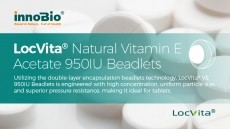Vitamin C may fight cancer in high IV doses
high doses that it has to be injected intravenously, suggests new
laboratory research.
The findings, reported yesterday by Dr Mark Levine and colleagues at the US National Institutes of Health, may have little impact on the supplement and functional food industry in the future but they do offer a potential explanation for the first theories surrounding vitamin C's anti-cancer effects, which emerged several decades ago.
The idea that vitamin C could protect against cancer was investigated first by Linus Pauling in the late 1970s along with a Scottish surgeon Ewan Cameron. They reported that patients treated with high doses of vitamin C had survived three to four times longer than similar patients who did not receive vitamin C supplements.
However the trial methods were deemed flawed by other scientists and the theory discarded by most when another study on patients with advanced cancer failed to confirm the results.
In recent years other researchers have also investigated a potential protective effect from vitamin C supplements against the development of cancer but the evidence remains insufficient to support this theory.
In the new research, Levine's team simulated clinical infusions of vitamin C on cancer cells. Injected vitamin C allows for much higher doses than the body would normally absorb when taken orally.
The researchers report in an early online issue of the Proceedings of the National Academy of Sciences (10.1073/pnas.0506390102) that when cancer cells were exposed to the ascorbate form of vitamin C, there was a 50 per cent decrease in survival in five out of nine cancer cell lines.
Normal cells also tested were unaffected.
The treatment probably works by boosting production of hydrogen peroxide, believe the US scientists.
When vitamin C is injected, it appears to diffuse outside of the bloodstream, allowing reactions to generate hydrogen peroxide. Hydrogen peroxide in the blood could do serious damage, says Levine, but outside the blood, there is the potential that it could work as a drug.
The study could influence future drug development, clearly a long way from the vitamin's nutritional use.
"These findings give plausibility to IV ascorbic acid in cancer treatment, and have unexpected implications for treatment of infections where hydrogen peroxide may be beneficial," write the researchers.
A phase 1 safety trial in patients with advanced cancer is "justified and underway," they say, as ascorbate is already widely available.
The study will be published in the 20 September issue of the journal (vol 102, pp 13604-13609).













